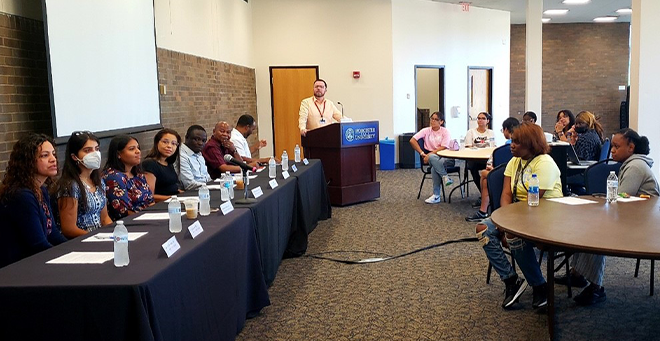
A new study is underway at UMass Chan Medical School examining ways correctional facilities can improve their existing prison classification systems with an equity lens, while still preserving public safety and institutional security.
Spencer G. Lawson, PhD, a senior research scientist in the Law and Psychiatry program in the Implementation Science and Practice Advances Research Center, or iSPARC, at UMass Chan, has been named a W.E.B DuBois Fellow and received funding from the National Institute of Justice to help launch a project aimed at creating a model for correctional agencies to identify and reduce potential racial and ethnic disparities and thoroughly assess their classification systems, which are used to determine custody level designations and facility assignments for incarcerated individuals.
Dr. Lawson and his colleagues are collaborating with the Massachusetts Department of Correction and the Executive Office of Public Safety and Security. With assistance from the National Institute of Corrections, they will share their findings with correctional agencies across the country.
“What we hope to get out of this project is a very tangible product that can not only benefit the Massachusetts Department of Correction, but other correctional administrators across the country,” Lawson said. “One of our big goals is the development of the toolkit that instructs correctional administrators on how to look at their own classification system with an equity lens, including what are the best practices for forming a diversity, equity and inclusion advisory board that’s comprised of justice scholars and individuals with lived experience in the criminal legal system.”
Lawson and fellow researchers will be visiting prisons across Massachusetts and observing firsthand individuals going through the initial classification and reclassification process and meeting with correctional officers to find out what areas of the classification process that need improvement and could be contributing to disparities, delays and access to certain programming within a facility.
“It’s going to be a roadmap of steps to follow for these facilities to look at predictive bias within a classification tool, or how to form equity metrics to establish some baseline disparities. That’s one of the most important aspects of this project. And I think that was also one of the reasons why the National Institute of Justice saw a lot of value in this because it expanded beyond just the borders of Massachusetts,” Lawson said.
He earned his PhD in criminal justice from Michigan State University and joined UMass Chan in August 2022.
The National Institute of Justice award is for $600,000 over four years. It’s the first federal grant Lawson applied for as principal investigator.


